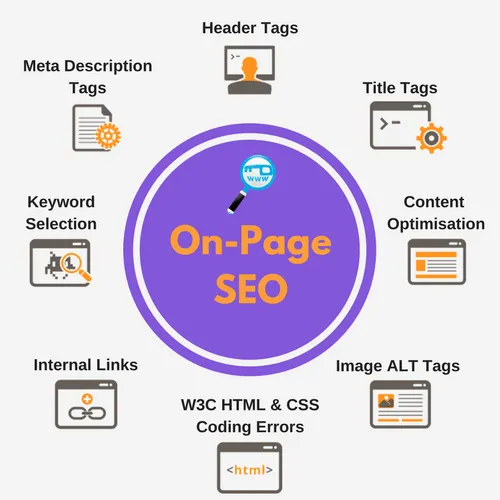B2B SEO in 2024: The Ultimate Guide
In today’s digital landscape, a strong online presence is no longer a luxury for B2B businesses – it’s a necessity. But with the ever-evolving search engine algorithms and a competitive marketplace, simply having a website isn’t enough. This is where B2B SEO comes in.
What is B2B SEO?
B2B SEO, or Business-to-Business Search Engine Optimization, is the strategic practice of
optimizing your website and online content to rank higher in search results for queries relevant to your target audience. Unlike B2C (Business-to-Consumer) SEO, which focuses on broad, high-volume keywords, B2B SEO targets accurate, long-tail keywords used by company decision-makers when studying products or services.
Why is B2B SEO Important in 2024?
The B2B purchasing process is complex, often requiring numerous decision-makers and extensive research before making a purchase.In 2024, SEO will be more important still for B2B companies for various reasons:
Increased Online Research
B2B buyers are increasingly relying on search engines to research potential vendors. A high ranking in relevant searches promotes your company as a thought leader and trustworthy source.
Lead Generation
Effective B2B SEO attracts qualified leads who are already interested in what you offer. This allows you to focus your marketing efforts on nurturing leads and converting them into customers.
Brand Awareness
High search rankings enhance your brand visibility and credibility in the B2B marketplace.
Cost-Effective Marketing
Compared to traditional advertising methods, B2B SEO provides a sustainable and cost-effective way to reach your target audience.
The Ultimate B2B SEO Strategy for 2024
Developing a successful B2B SEO strategy requires a multi-pronged approach. Here are the components that you should concentrate on.
Understanding Your Audience:
- Buyer Personas: Understanding the customer you would like to reach is the starting point of any B2B SEO strategy. Create detailed buyer personas that outline their demographics, job titles, pain points, and information consumption habits.
- Keyword Research: Identify the long-tail keywords your target audience is using to research solutions like yours. Look for keywords with high search intent and lower competition. Tools like Google Keyword Planner and SEMrush can be beneficial in this.
Content is King:
- High-Quality Content: Create valuable and informative content that addresses the specific needs and challenges of your target audience. This could encompass blog posts, white papers, case studies, industry reports, and infographics.
- Content Optimization: Optimize your content for your target keywords while maintaining readability and providing genuine value.
- Thought Leadership: Establish your company as an industry expert by publishing insightful and thought-provoking content that positions you as a trusted resource.
Must Read SEO Cost in 2024: How Much to Invest for Top Rankings?
Technical SEO Optimization:
- Website Speed: Ensure that your website loads promptly on all devices. Google prioritizes fast-loading web pages in its search rankings.
- Mobile-friendliness: In today’s mobile-first world, a responsive website design that adapts seamlessly to different screen sizes is crucial.
- Site Structure: Create a clear and logical structure for your website in order to search engines can effective crawl and index the content you provide.
- Structured Data: Implement structured data markup to provide search engines with richer information about your content, potentially improving search result snippets.
Link Building:
- Backlinks: High-quality backlinks from reputable websites in your industry act as a vote of confidence for your website in the eyes of search engines.
- Guest Blogging: Contribute guest articles to relevant industry publications and blogs to earn backlinks and reach a wider audience.
- Industry Awards: Winning industry awards and recognition can generate backlinks and enhance your brand reputation.
Also, read more Shopify SEO Services to Elevate Traffic and Rankings
Analytics and Measurement:
- Track Your Results: Monitor your website traffic, keyword rankings, and lead generation through analytics tools like Google Search Console.
- Data-Driven Decisions: Use data insights to refine your B2B SEO strategy and focus on what’s working best.
B2B SEO in 2024 and Beyond
As search engine algorithms continue to evolve, B2B SEO will require a focus on user experience, EAT (Expertise, Authoritativeness, and Trustworthiness), and topical relevance. By prioritizing high-quality content, technical optimization, and a user-centric approach, B2B businesses can leverage the power of SEO to attract qualified leads, build brand awareness, and achieve sustainable growth in the ever-competitive digital landscape.






